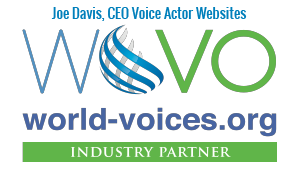More people than ever are taking an interest in voice acting. The good news is that despite an influx of curiosity about the industry, there remains a surplus of work. This is when compared to the number of quality talent available to do it. The bottom line is that if you have the chops, the ability to effectively use a DAW, and great entrepreneurial skills, there can be a future for you as a professional voice actor. Read on to learn more about what good looks like with demos and coaches in 2023.
Demos and Coaches Introduction
However, like in any other industry where people can earn money as performers, thousands of so-called experts have sprouted up to sell you their secret success sauce. Most coaches and demo producers are well-meaning and are genuinely interested in seeing you succeed. Many, however, don’t know what they don’t know, and getting bad information puts you at risk of doing damage to your career before it even begins.
Here are some things to ask anyone you are considering coaching or doing a demo with.
Industry Coaches:
1. What qualifies you to do what you do?
Being a successful voice actor in their own right is the first thing that qualifies many coaches. Whether they have miles-long IMDb pages with animation and gaming credits or are consistent commercial/promo/trailer/narration bookers. Most quality coaches from the performance side of the mic have abundant social proof of their success that you can easily find online or on their websites. A track record of historical success doesn’t mean they are currently heavy bookers, so be careful. Coaches who come from the talent side and can’t show big booking wins in the recent past may be teaching techniques that are out of date.
If your coach comes from the other side of the glass as a casting director, agent, manager, director, or producer, their social proof should be equally compelling. What shows have they worked on? What commercial campaigns are they credited on? Are their credits current? A little internet research easily yields this information.
2. Who are some of your most successful students?
Coaches with track records of success should have at least half a dozen or more verifiable names they can give you to contact for referrals/testimonials. Moreover, these people should have demonstrable and visible social proof of their own success. Confirming from successful voice actors testifying that working with a particular coach has helped them achieve their goals shouldn’t be hard to achieve. If it is, that may be cause for concern.
3. What genres do you specialize in, and are there any you don’t teach?
Very few people from any industry are experts in all parts of the industry. I have no business teaching animation, video games, or audiobooks, as these are areas I don’t actively compete in. As someone who has been around the industry for a while, I have a working knowledge of these genres. I could probably blag through a lesson, but I’d be ethically bankrupt if I didn’t send you to Scott Brick, Kristin Paiva, or Daniel Ross instead.
4. What is your process like, and how would you describe your teaching style?
Most coaches can answer this directly and most often have literature available to offer a deeper exploration of these questions. Knowing your prospective coach’s teaching style is critical. For a closer look at common teaching styles in the industry, check out this article.
Industry Demo Producers:
1. Do you offer an unconditional satisfaction guarantee or your money back?
If there is hesitation or non-commitment on this point, run. Demo production is expensive for a reason. Most of us who produce demos have six or seven-figure careers as voice actors. When we take time away from the mic to write copy, direct a session, and produce a reel, we lose money. That has to be recouped with price tags that typically run between $1500 and $3000 for an elite demo.
However, it is a demo producer’s responsibility to ensure you get a reel that is both viable and that you love. Most of us will work until you give the final sign-off. This is regardless of how many rounds of revisions or changes may involve. Reputable demo producers will put their money where their skills are. If a demo producer is not confident enough in their product to offer a no-questions-asked refund policy, they probably shouldn’t be making reels.
2. What results have your demo clients achieved with their demo/s?
Demos serve two primary purposes: Helping you get representation and helping you get clients to book you directly through your website and other platforms.
Most demo producers offer abundant social proof of their clients achieving their goals. To begin with, if a demo producer doesn’t have a page where you can hear their work and see the FULL names of those they have worked with, run. If they have fewer than twenty samples up there, that may be a red flag. You should feel free to contact any of the names you see on a demo producer’s website to ask about their experience.
Many producers will tout the clients of agents and the clients they have signed with them. As well as this, they will be posting on social media about their big bookings or the industry awards they have won.
Once again, look for a trail of happy, successful clients, and you’ll find yourself in good hands.
3.) What is your process like, and when can I expect to revive my reel?
Most demo producers will have this information available in written form, as well as be able to discuss it personally. If they cannot commit to a general timeline, that can be a red flag.
Demos and Coaches Conclusion
Demos and coaches are a vital part of the voiceover industry. Ultimately it is your responsibility to vet your coaches and producers. The people you work with will often inform the kind of career you will have. For instance, there are plenty of small market superstars out there who may be popular in Jacksonville, Florida, Phoenix, or Milwaukee. They may book many local radio spots and know everyone in that market. They may be entirely qualified to teach you how to thrive in their world. But if you want to play on the national level, you need to work with people who live in the big leagues day in and day out. Do your research, and be sure to work with people whose ability to guide you matches your career aspirations.
Demos and Coaches in 2023 by J. Michael Collins



